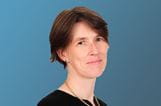The progress we have made with gender can be a roadmap for other areas of diversity
Related people
Headlines in this article
Related news and insights
Publications: 10 April 2024
Publications: 18 March 2024
Publications: 15 January 2024
Publications: 31 October 2023
To mark International Women’s Day, our new regional diversity and inclusion partners take a look at our progress on gender balance.

Building a strong pipeline
“One of the things all five of us have recognised, when looking at gender, is that change is happening with women’s progression across every region,” says Fiona Cumming.
“When you look at the picture now, you can see that in many offices the pipeline of women coming through to senior positions has increased over the past three years – I’ve certainly seen that in Asia.
Ian Field believes the focus on retention and progression is making an impact. “The gender splits will fluctuate slightly year on year, so it’s important we stay focused on the longer-term trend and don’t slip backwards,” he says.”
Retention and progression
Focusing on retention early on in women’s careers is something the partners agree is crucial.
“Many women self-select out of their careers early on for a variety of reasons,” says Fiona. “So we have to act on that by equipping women with the tools, confidence and mindset to take control of their career paths from an early stage – and by equipping ourselves with the tools to support our female talent.”
“Retention is a big focus here too,” says Kathleen Wong about the Middle East and Africa. “The discussions have broadened from being mostly about how to support women as mothers, to now being much more about increasing women’s profile and visibility.”
The Dubai office recently ran the ‘Women Making Their Mark’ programme with several major clients and A&O attendees from Abu Dhabi and Johannesburg. “It’s a powerful platform to share experiences,” Kathleen says, “a common one being that you’re often the only woman in a meeting room, so how do you handle that?
“It blew me away to see how smart, strong and ambitious this group of women are, and hit home just how much of a disservice we’d be doing them – and our firm – if we don’t work hard to ensure they stay and progress here.”
Strong and clear messages
Having clear and strong messages about how the firm supports women’s progression is something Elizabeth Leckie says is crucial in the U.S. too.
“Our development programmes are really important as they demonstrate that conversations about career progression start from a very early stage here. The interesting events we run, often with clients and local bar associations, help to connect us to the wider debate too – like the panel discussions we are hosting over the next few weeks with the Metropolitan Black Bar Association and the Hispanic National Bar Association on women’s representation in the profession.”
Recent client events in the U.S. have looked at the subject of gender and the law itself, such as ‘Working in the wake of #MeToo', and an international panel debate on ‘What’s gender got to do with competition policy?’ “These are really popular because they cover substantive areas of law within the gender debate,” says Elizabeth.
Showing a commitment at every level
In an interesting event in Brussels to mark International Women’s Day, Caroline Coesemans, Google’s Head of Legal & Public Policy, took people through a workshop on how and why to use self-promotion as a career development tool – as part of Google’s #IamRemarkable initiative to celebrate the achievements of women and under-represented groups in the workplace.
It is sad, Hendrik Jan Biemond says, that in 2020 it’s still necessary to have a women’s day. “But it is imperative to remind people that women still do not always have equal opportunities in the business world – or indeed more widely in society.
“That is why it has been so important to set the right tone on diversity at the top of our organisation, and be clear that there is real commitment to improve gender balance among our group of partners,” Hendrik Jan says. “The real challenge is to live up to these intentions in our daily business with, for example, our flexible working programme.”
Working experiences are key
This is a point all five partners are clear about: leadership commitment has to be underpinned by what people are experiencing day to day in work.
“While our people see a genuine commitment from the top, what really convinces theme that we are making progress is when this is matched by their own experiences within their teams – with improvements on areas such as sponsorship, parental leave and a flexible working culture, Ian says
“That’s why it is a priority for the regional D&I partners to drive engagement from the whole partnership across all areas of diversity and – crucially – inclusion. Making improvements across the various D&I metrics is important, but this is really all about creating an inclusive culture so that everyone feels they can thrive here.”
Priorities for 2020
Fiona agrees. “All of us as partners need to take ownership of delivering our diversity and inclusion strategy – it’s one of the firm’s strategic priorities after all.”
Across offices in AsiaPacific, lawyers and support professionals are coming together to discuss priorities for D&I in their respective offices.
“From these roundtables, we will put together concrete action plans for delivering what our people wish and need in the D&I space, specific to each office," says Fiona, "and that have full partner endorsement so that we can track progress and maintain accountability.”
“I also want us to engage more with our clients and peers so that we are working to change mindsets on diversity across our whole industry. It’s not a competition – we need to pool our knowledge and ideas, like we are doing in Hong Kong with PwC’s Private Equity team on a PE-focused gender diversity forum.”
Across offices in Europe, the focus is on ensuring the talent pipeline of women continues to strengthen and translate into partner promotions. “One of the things we have implemented in most of our European offices,” says Hendrik Jan, “is a strong sponsorship and mentoring programme to support female associates. But so many cultural differences exist across Europe that there is no ‘one size fits all’ solution.
“I also believe that if we want to achieve broad culture change, we need to build awareness with men too – about how long-established business practices create barriers for women and indeed others outside the dominant culture,” Hendrik Jan says. “We are not trying to create an advantage for one group over another, we are trying to ensure that everyone has an equal chance to progress.”
For Kathleen, continuing to build awareness is important – both about what the firm is already doing and what still needs to be done – as is ensuring conversations among partners lead to action points.
“One of the things I’m also excited about in 2020 is the launch of a women’s development programme in Riyadh,” she says. “MaameYaa Kwafo-Akoto, senior associate in London, has been developing this with a client, particularly focusing on bringing senior women in finance together to share experiences and development tools. Given the historical and cultural backdrop in Saudi, this is a really innovative programme.”
In the U.S., a key priority is recruitment, given plans to bolster the firm's U.S. practice this year. Elizabeth also shares the objective of achieving greater engagement from across the partnership.
“The accountability partners have for monitoring the female pipeline is certainly making a difference – and we are staying firmly focused on that here. Whatever you think about targets, they make us look harder at our talent pools.
“I’m proud that as a firm we took some bold steps to make faster progress with gender balance and to demonstrate that there’s more than one way to build a career here. What the past few years ultimately show us is that our success with gender can be a roadmap to drive progress across other areas of diversity and inclusion. It is a necessary and continuous conversation for us all to have.”


